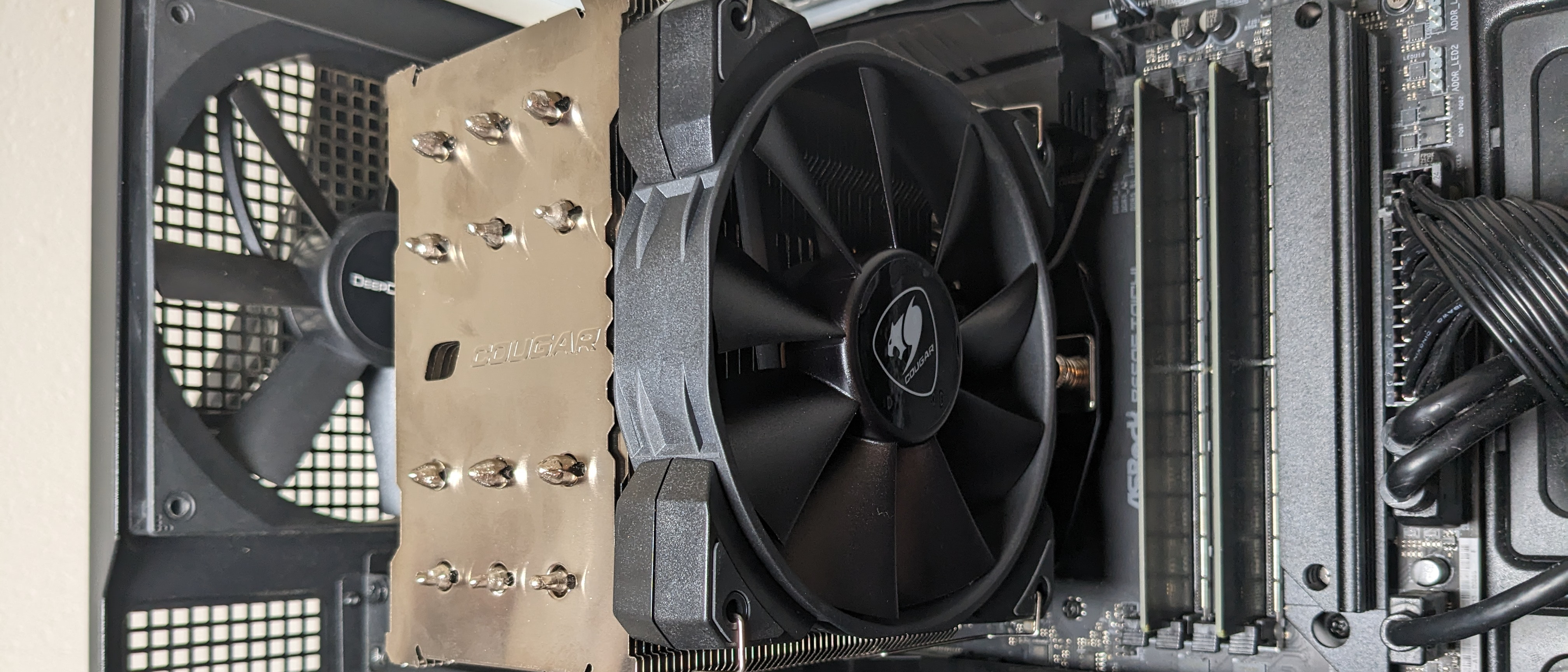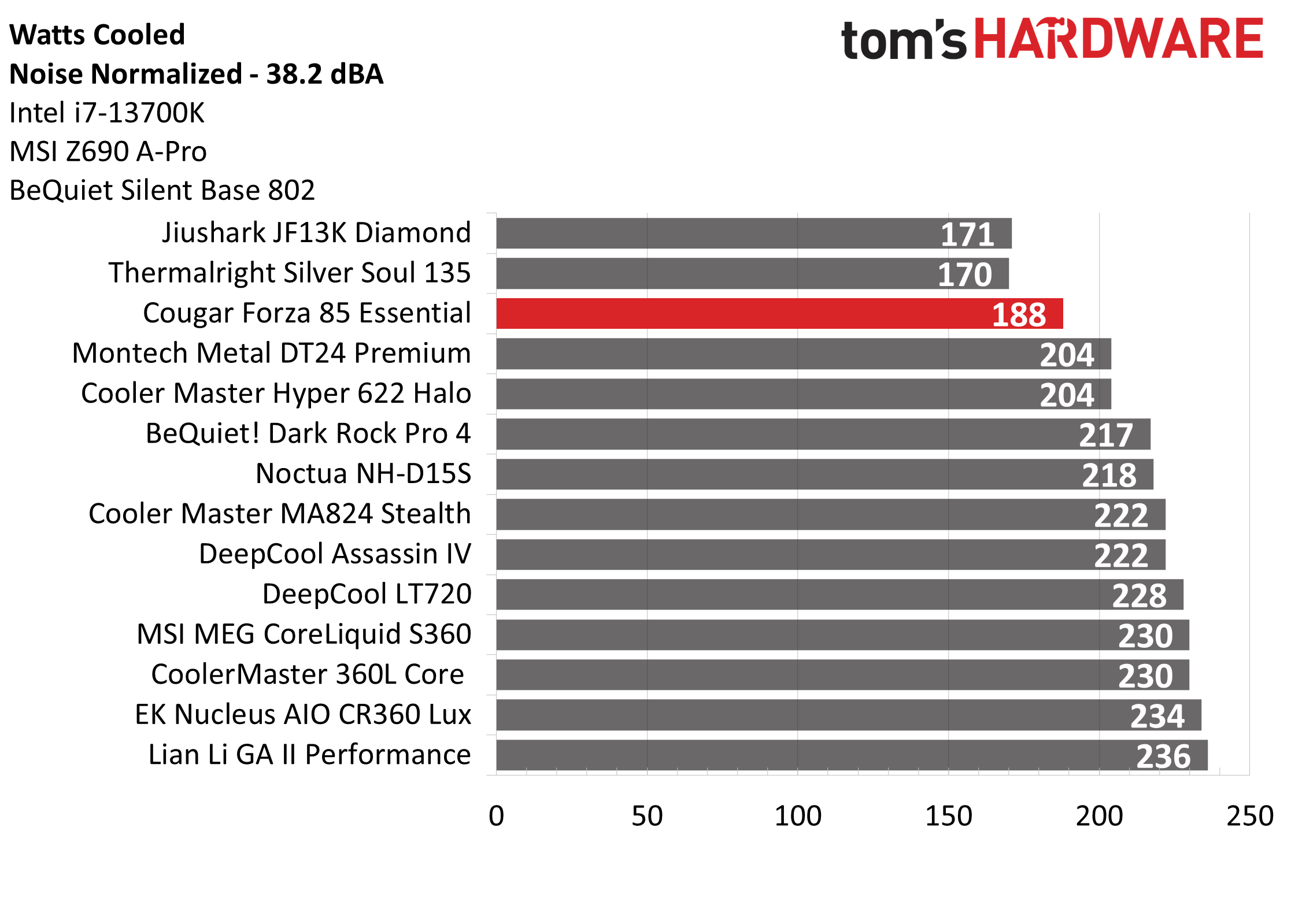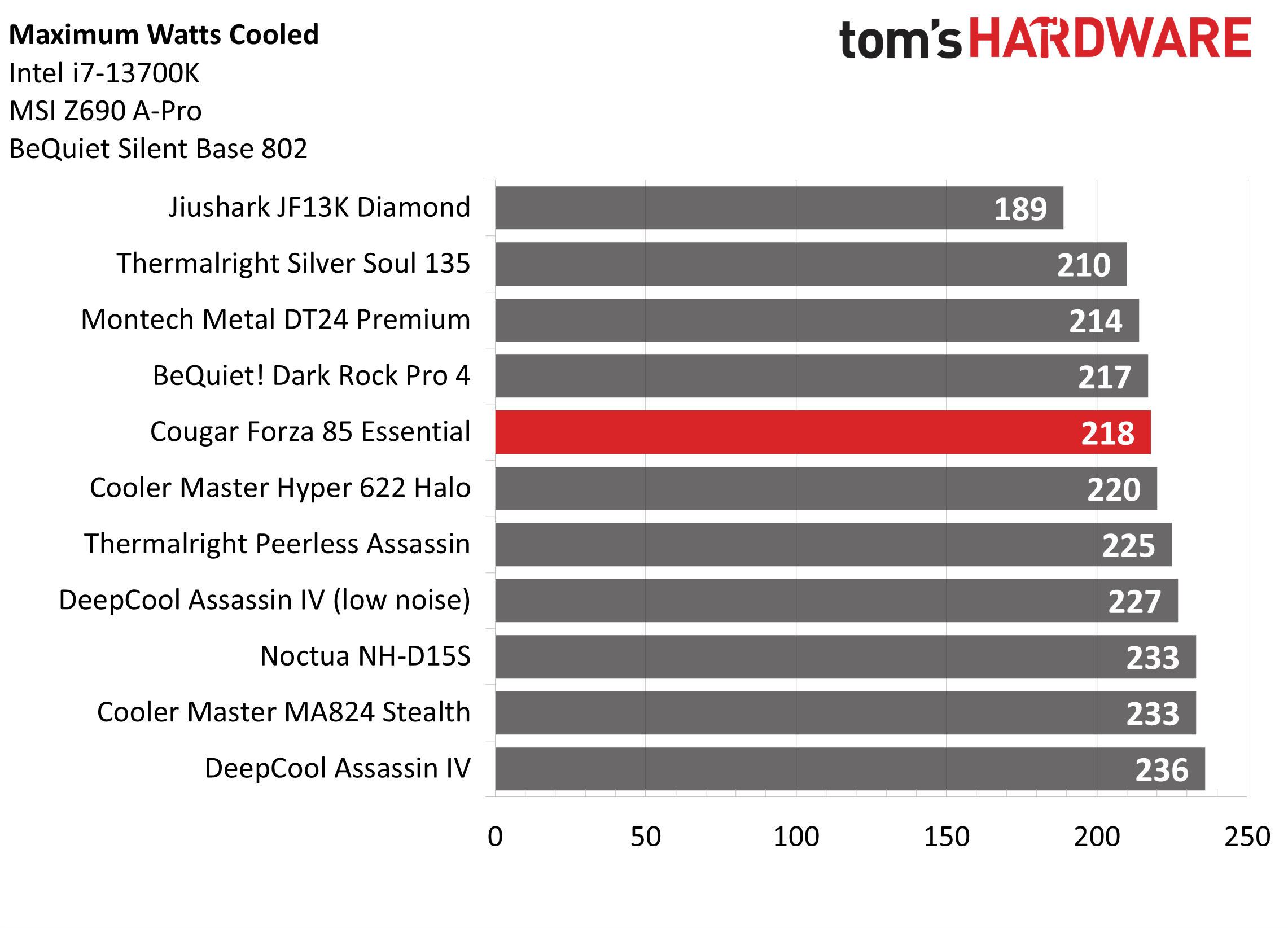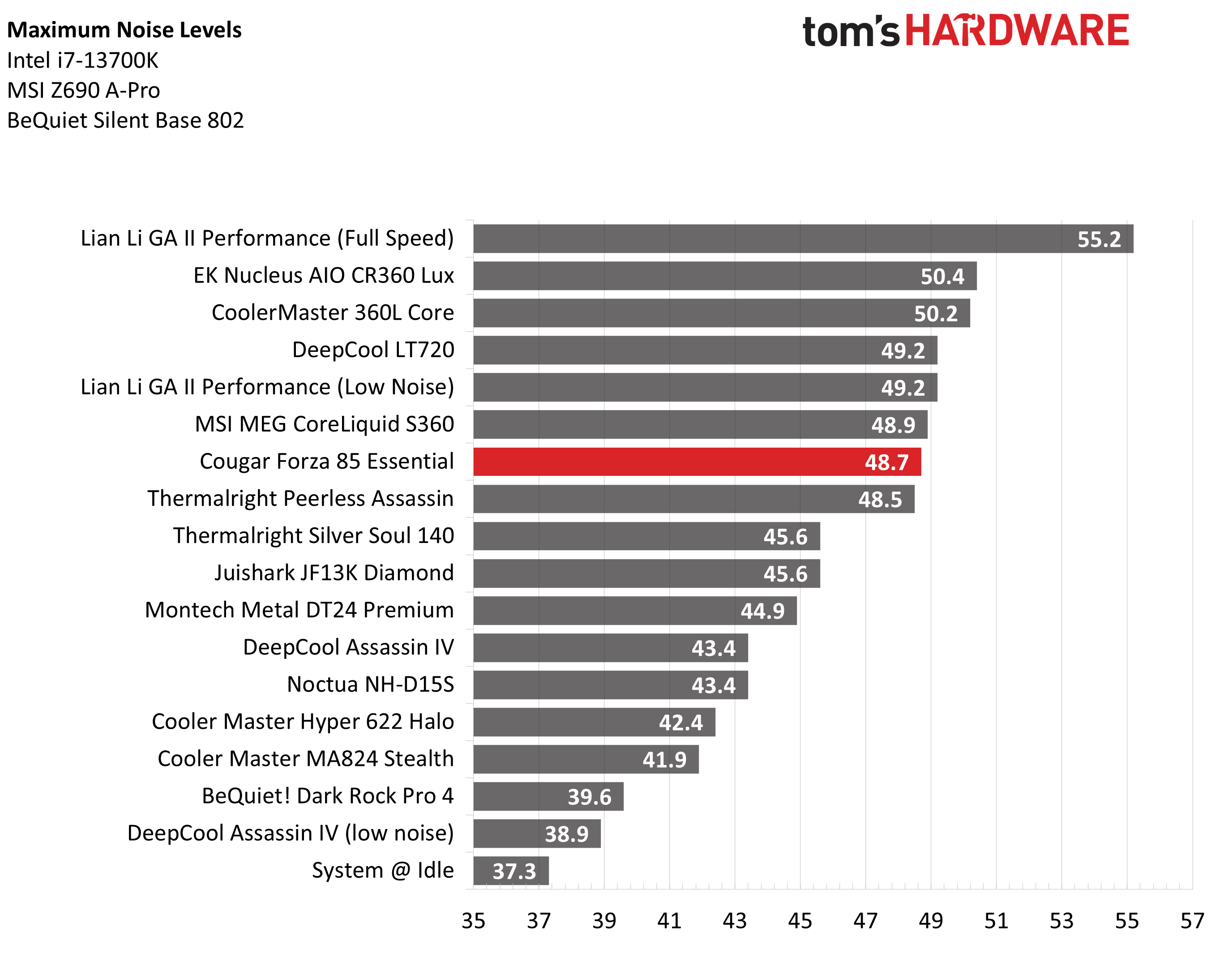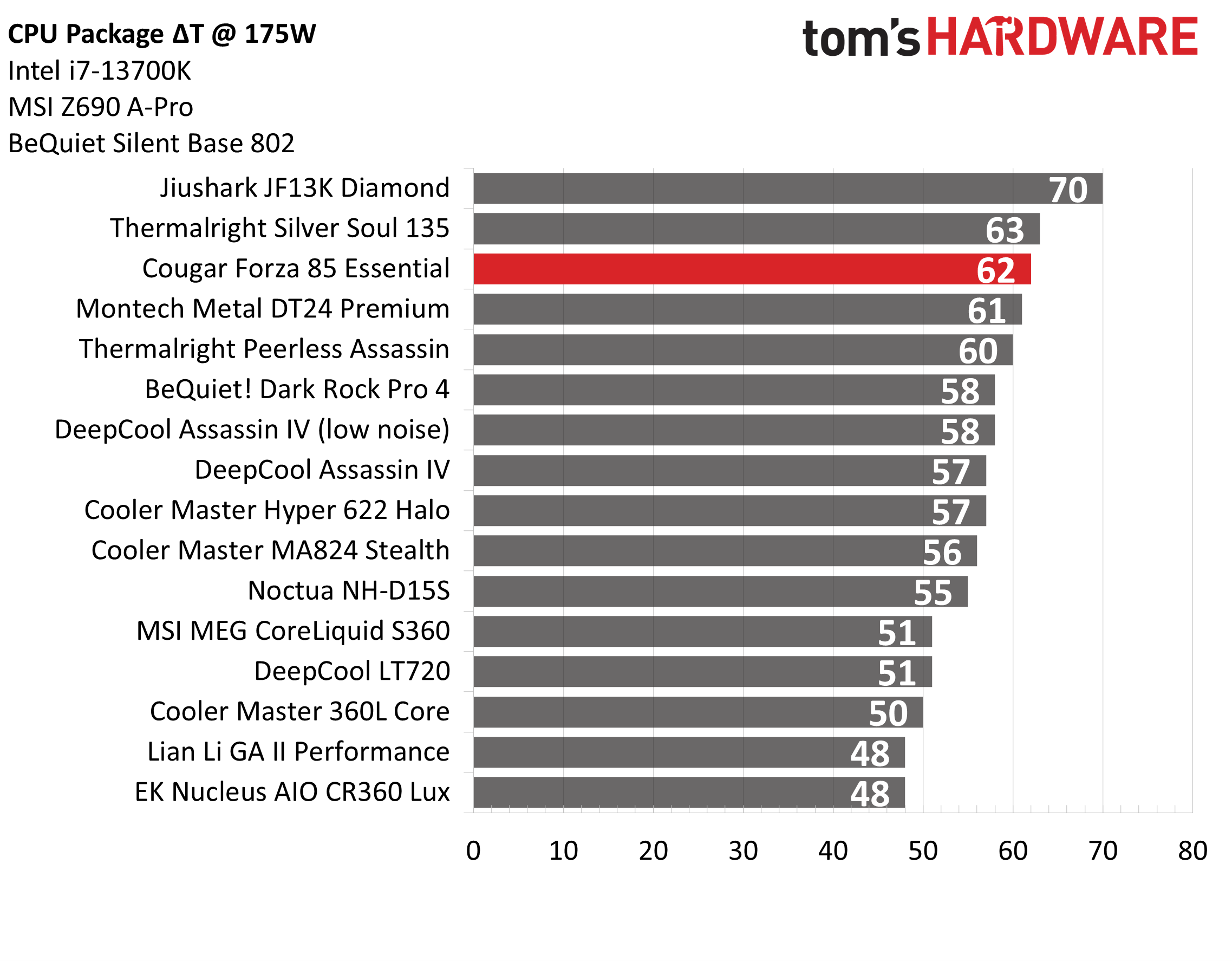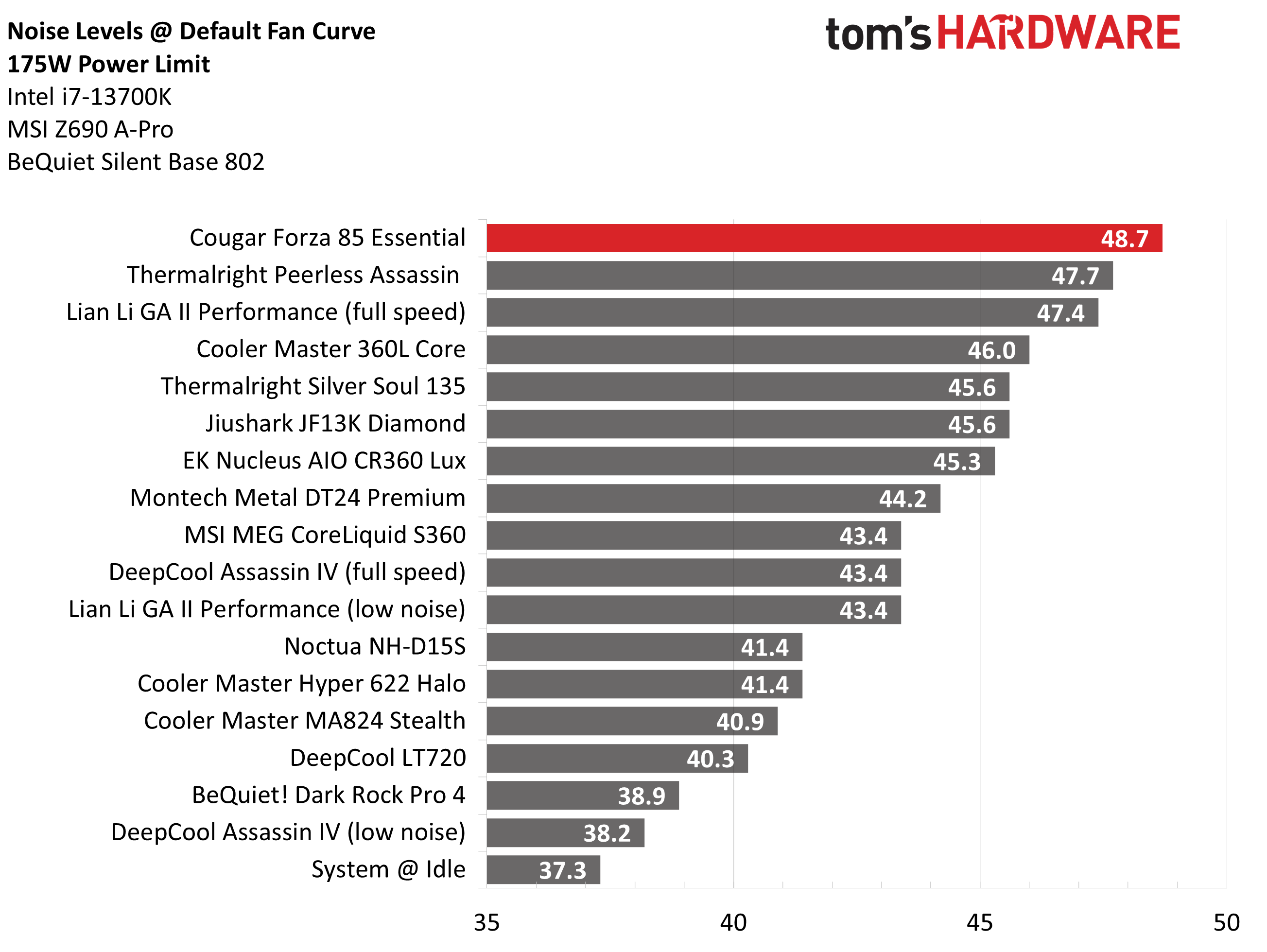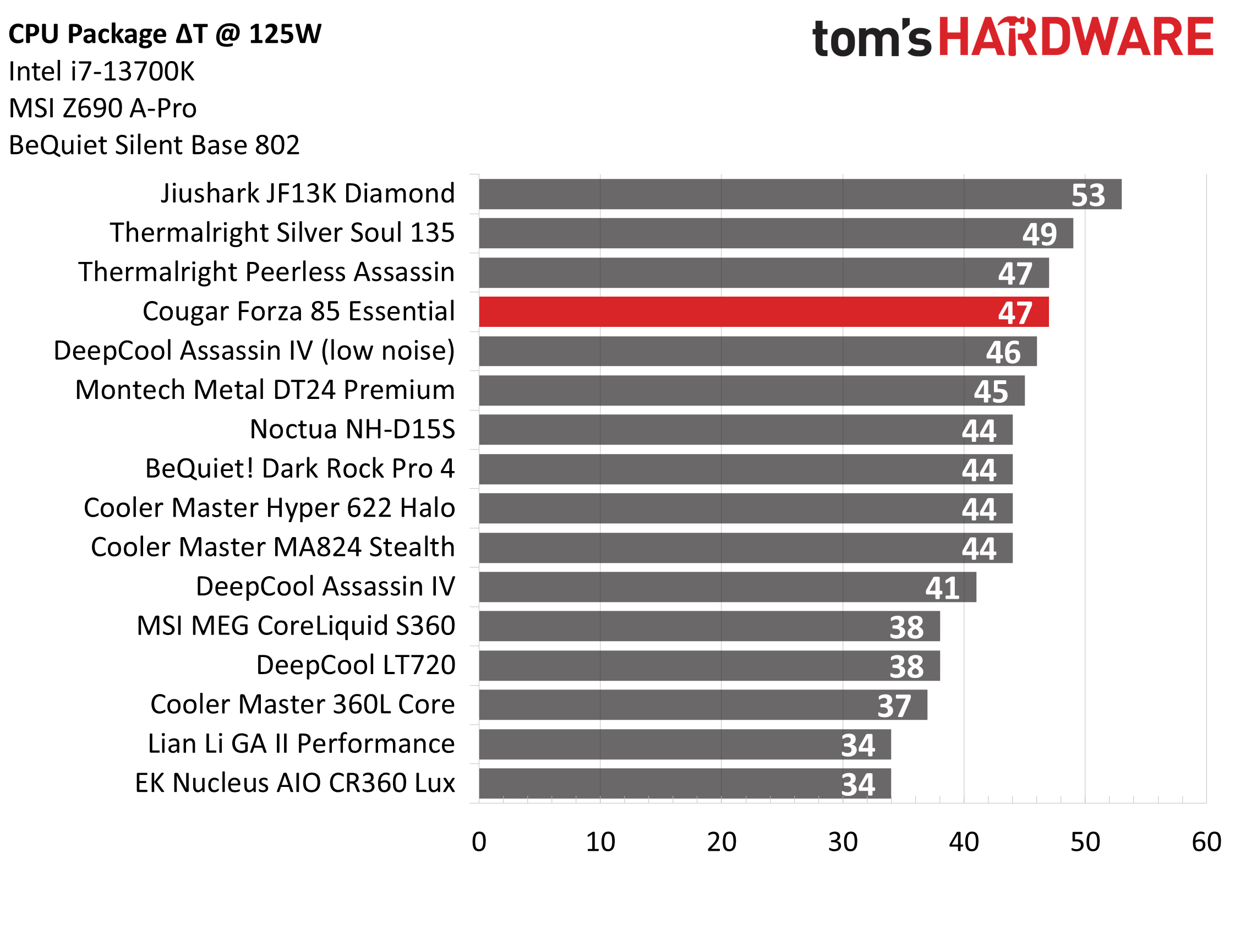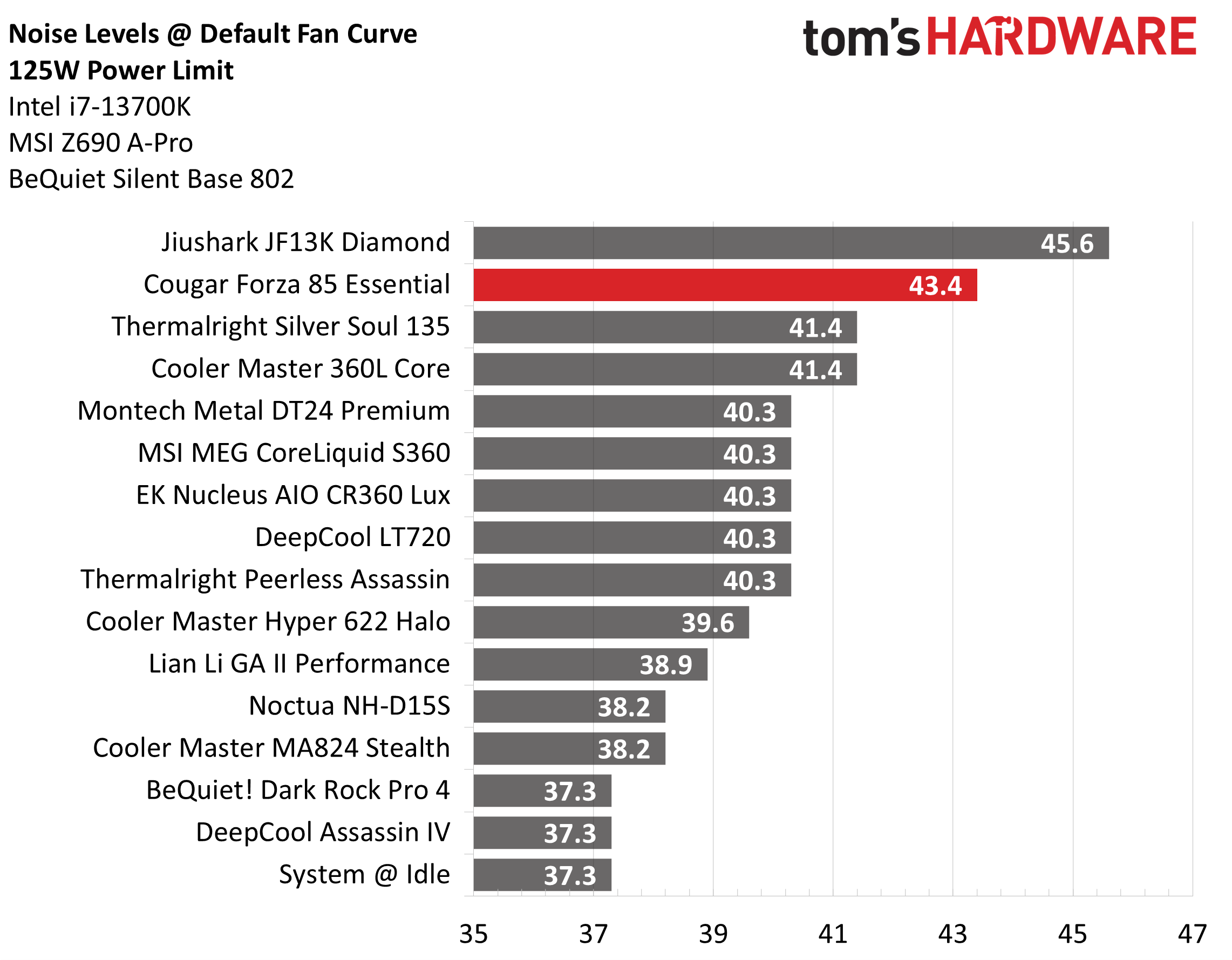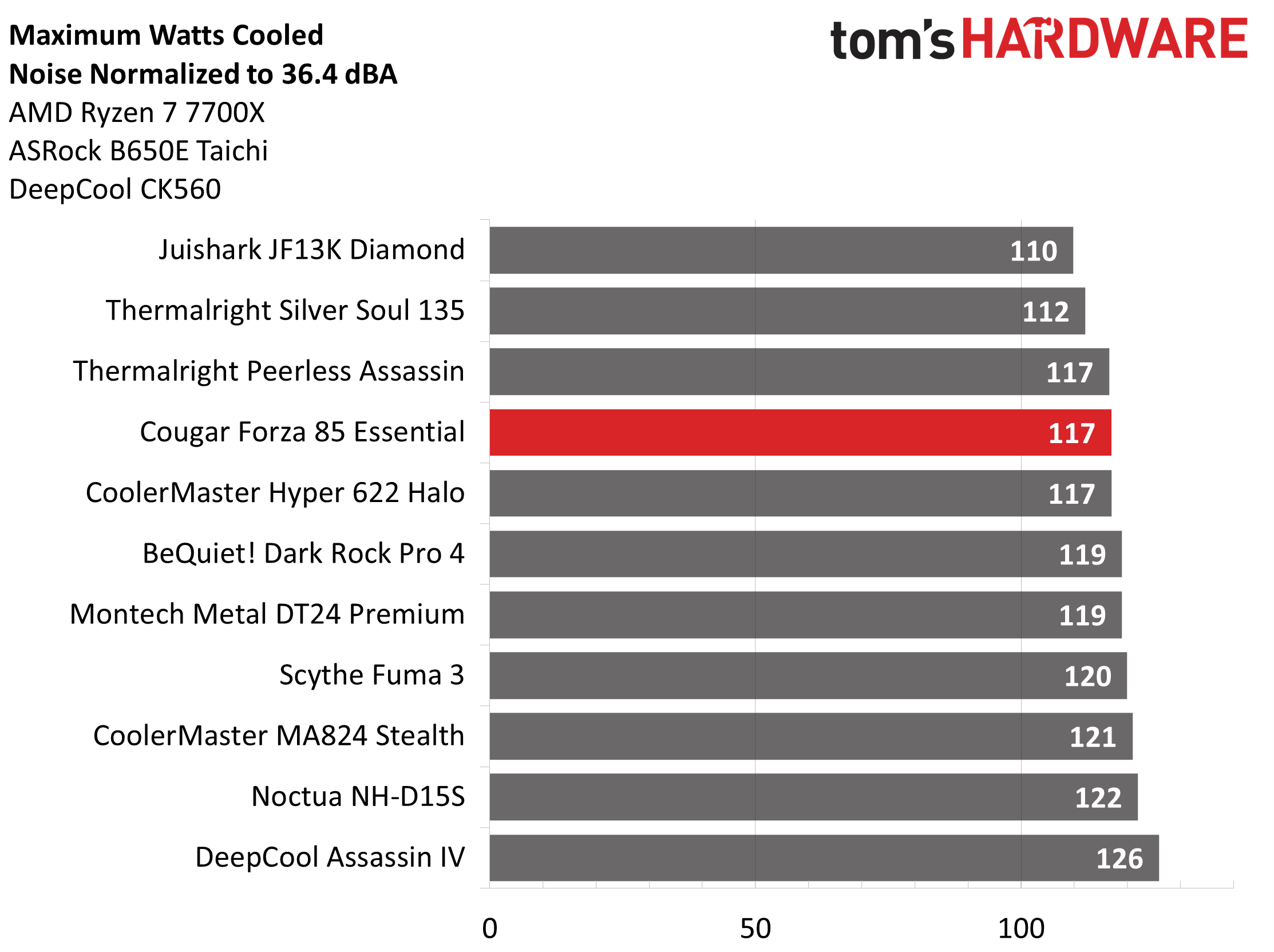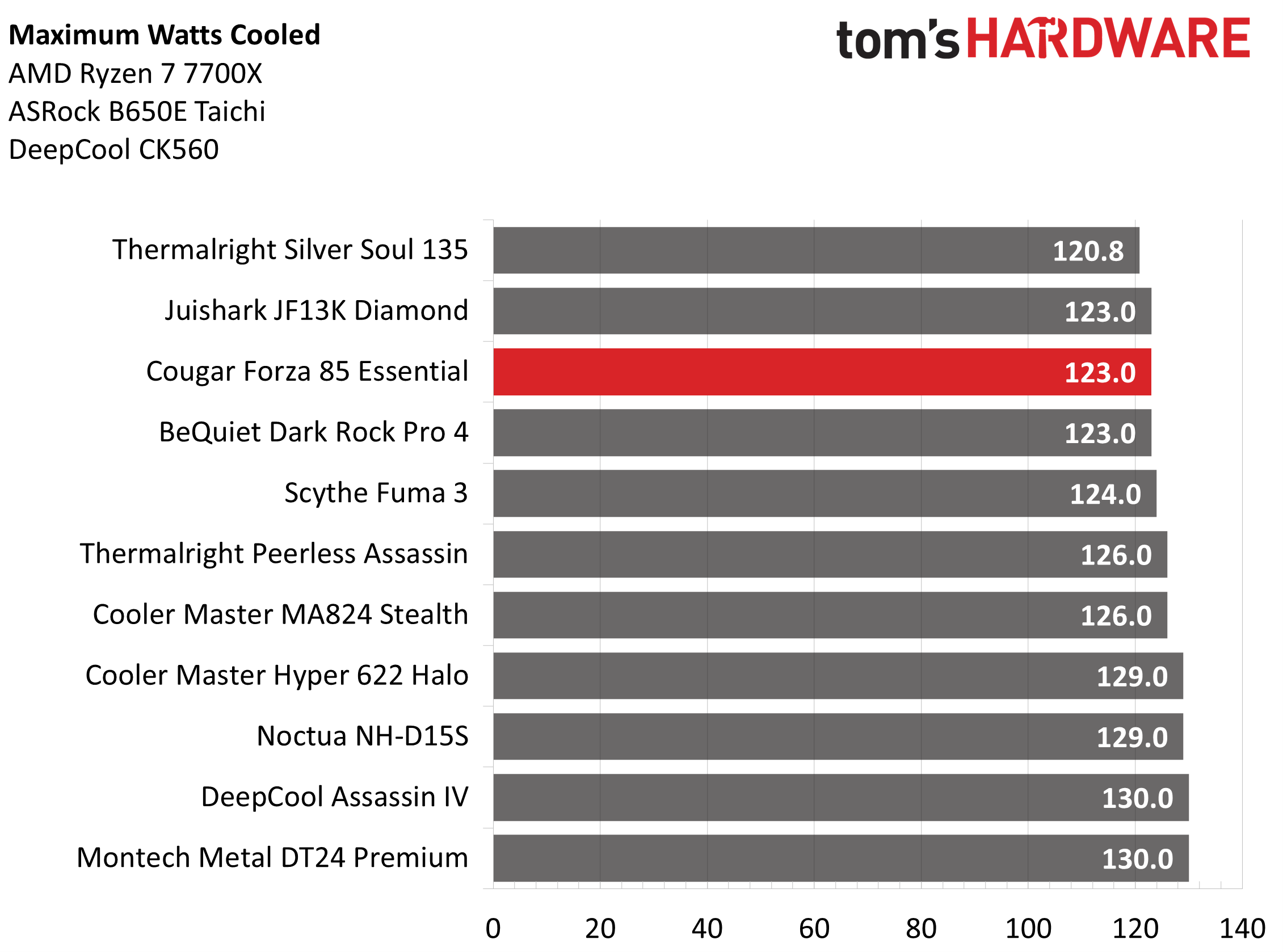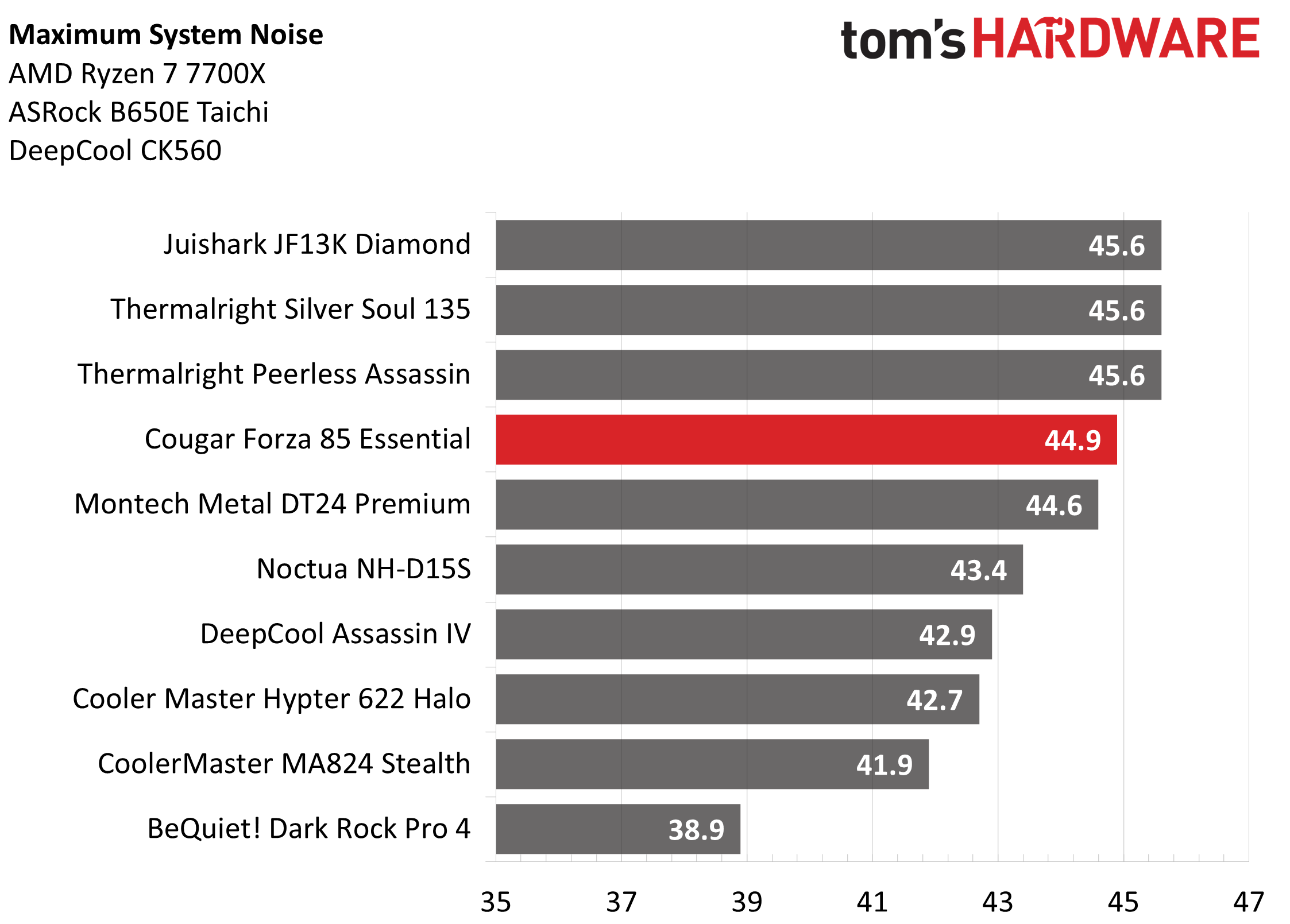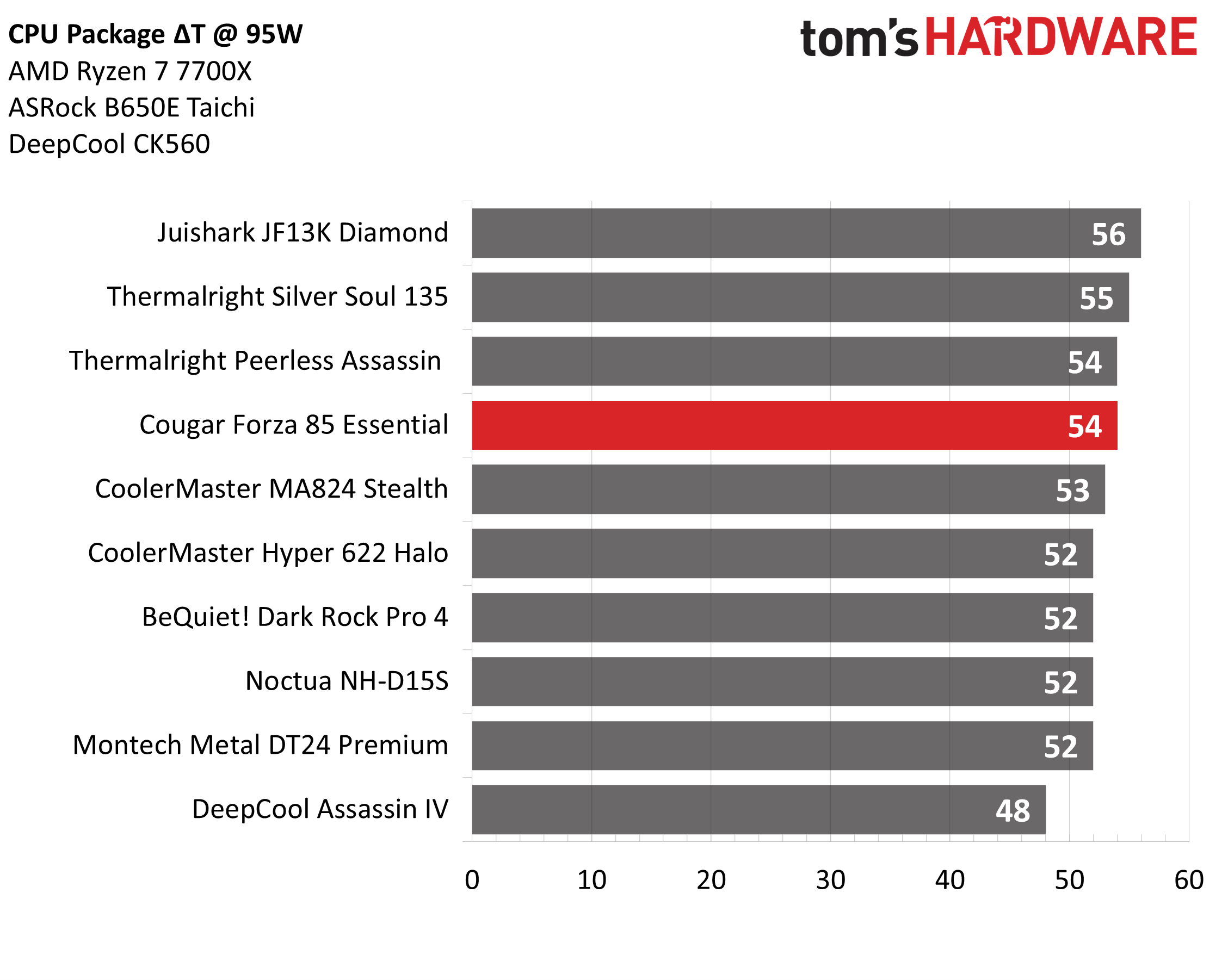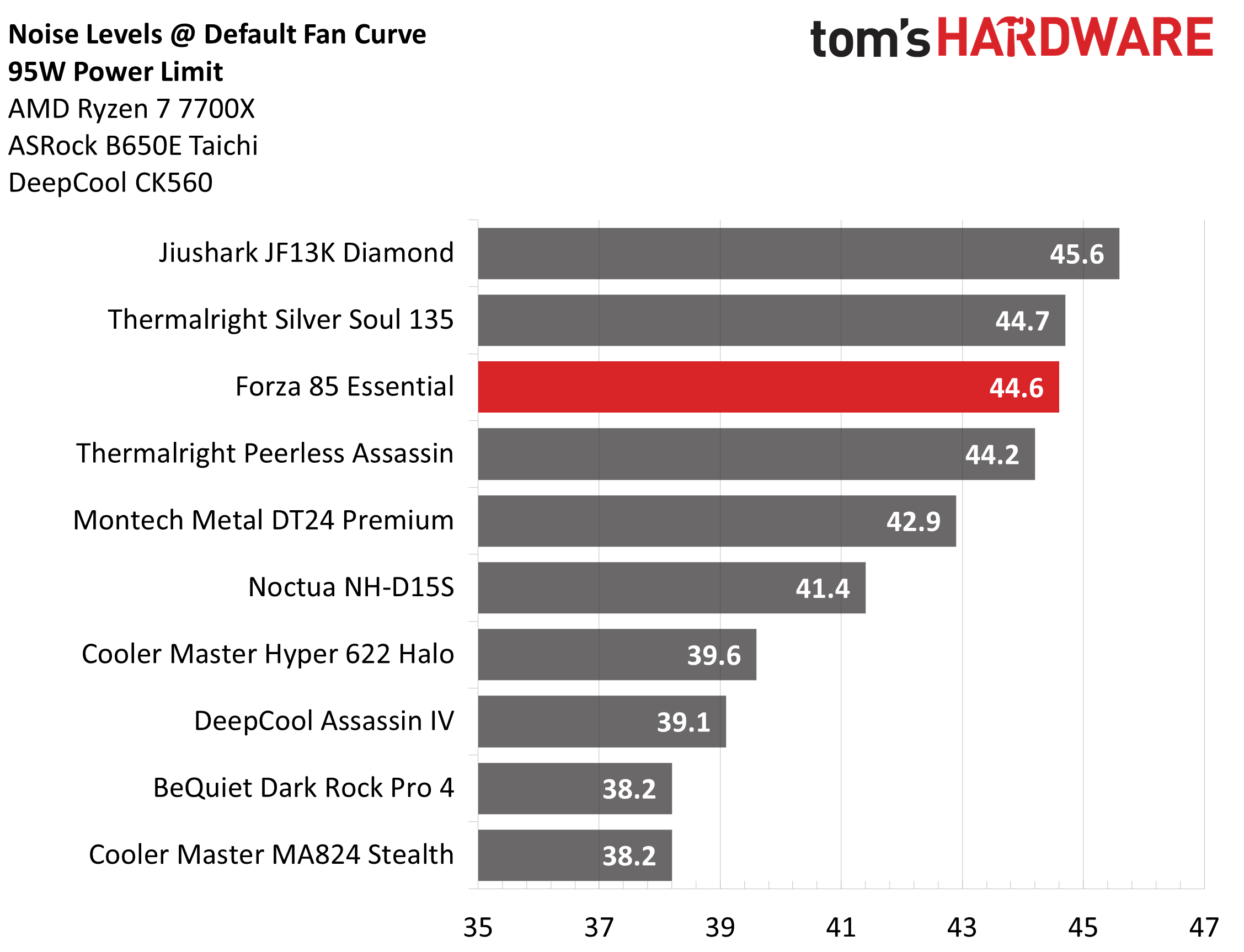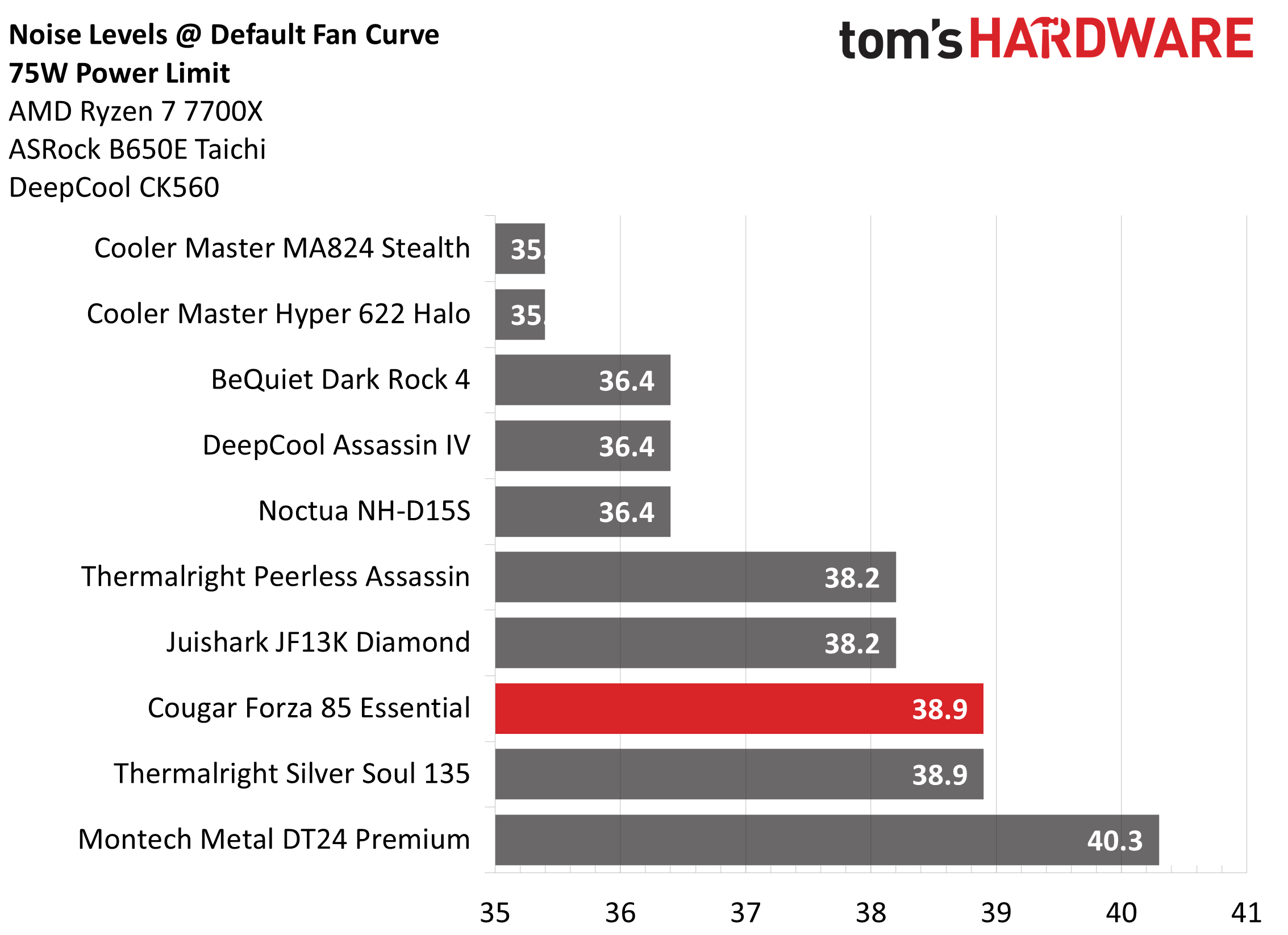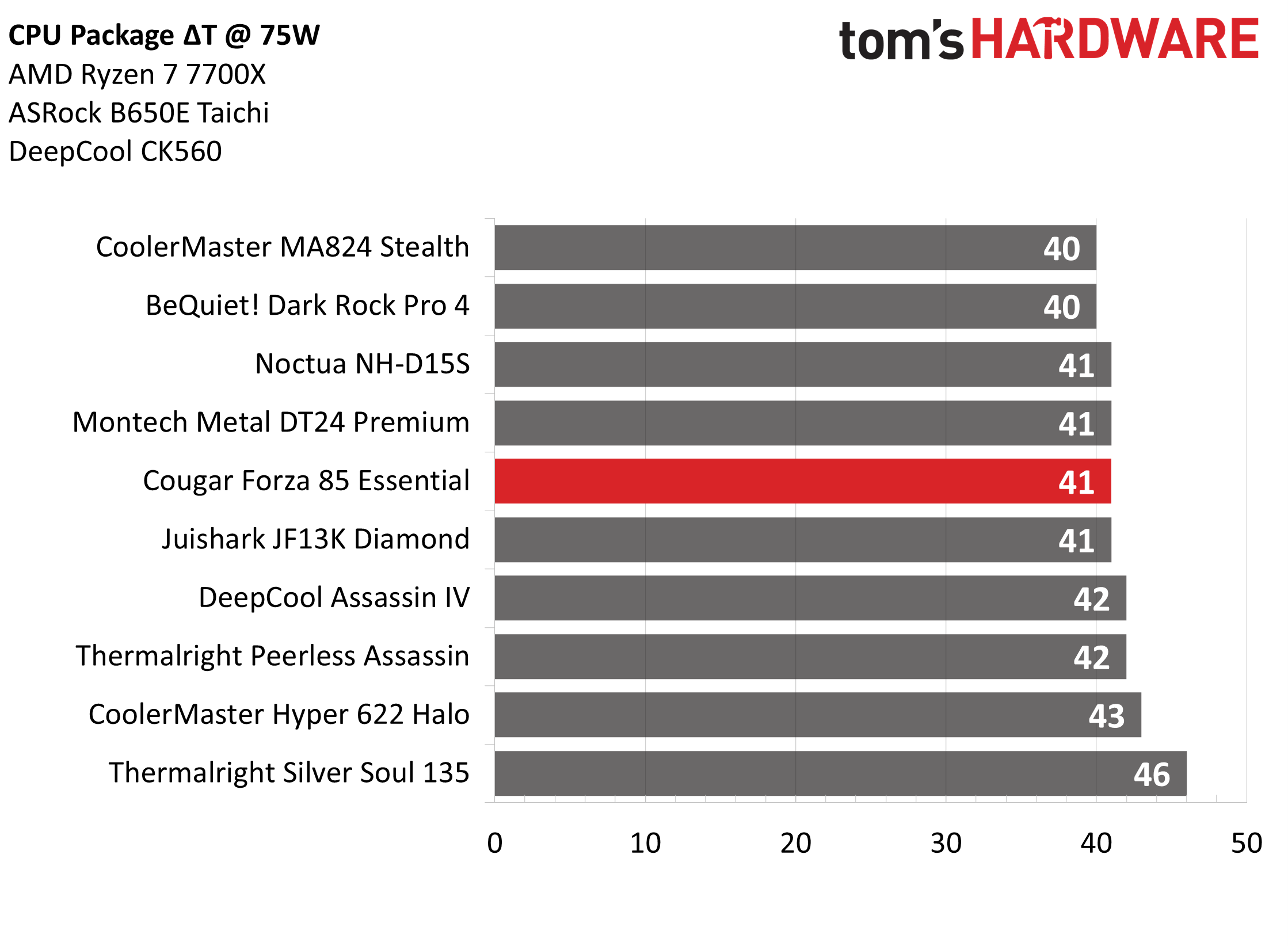Why you can trust Tom's Hardware
Thermal Results with noise normalized to 38.2 dBA
Finding the right balance between fan noise levels and cooling performance is important. While running fans at full speed can improve cooling capacity to some extent, the benefits are limited and many users prefer a quiet system.
In this test where the fans have been set to low noise levels, the Forza 85 Essential performs a little better than Thermalright’s Silver Soul 135, but behind coolers like Cooler Master’s Hyper 622 Halo. This is about where we expect most mid-range air coolers to perform.
No Power Limits Thermal Results
Without power limits enforced on Intel’s i7-13700K, the CPU will hit its peak temperature and thermally throttle with even the strongest of air coolers. In this test, we measure the total amount of watts the cooler is able to dissipate from the CPU.
In a maximum heat workload, Cougar’s Forza 85 Essential does very well – performing on par with BeQuiet’s Dark Rock Pro 4. Unlike BeQuiet’s model, however, it operates with a moderately loud noise level of 48.7 dBA in order to achieve this level of performance. While it doesn’t bust eardrums, this is the loudest result I’ve recorded from an air cooler.
175W Cinebench Results
Most coolers on the market are able to keep Intel’s i7-13700K under it’s peak temperature if the power consumption is limited, so for this test we’ll be looking at the CPU’s actual temperature.
With this slightly restricted workload, Cougar’s Forza 85 Essential doesn’t perform very well with an average CPU temperature of 85C (62 degrees over a 23C ambient temperature). What’s worse is that in this test it’s the loudest cooler I’ve tested – reaching the same noise level as it did in the unrestricted test with a noise measurement of 48.7 dBA.
125W Cinebench Results
The lowest power limit I test with Raptor Lake CPUs is 125W. This is a high enough limit to allow the CPU to maintain it’s base clockspeeds even in the most intensive tests, and most coolers should be able to keep the CPU below Tjmax – even low-end coolers.
Get Tom's Hardware's best news and in-depth reviews, straight to your inbox.
With a thermal measurement of 47C over ambient, Cougar’s Forza 85 Essential isn’t the best result here – but in this scenario thermal measurements are largely academic. What’s more important at this restricted TDP are noise levels. While the Forza 85 Essential doesn’t run loud by any sense of the word in this workload, it is the loudest result I have from any mainstream air cooler. This is frankly a disappointing result.
AMD Ryzen 7 7700X Thermal Results
It’s great to see how coolers perform with hotter CPUs like Intel’s i7-13700K, but that performance doesn’t always directly translate to how other CPUs will operate with the same coolers. Some coolers might perform better – or worse – depending on the CPU it’s paired with. Today’s review I’ve includes AMD’s Ryzen 7 7700X to show how coolers might respond with more commonly used CPUs.
Thermal Results with noise normalized to 36.4 dBA
With noise levels set to 36.4 dBA, I measured 117W cooled on average during the course of testing. This is good result, comparable to Cooler Master & Thermalright coolers, and is only a few watts short of the cooler’s performance when noise levels are not restricted.
Maximum Cooling Capacity with maximum fan speeds
Our next test is to test the cooler’s maximum cooling capacity by allowing the fans to run at full speed. In this test, Cougar’s Forza 85 Essential handles 123W placing it amongst air coolers like BeQuiet’s Dark Rock Pro 4. This is a decent result, only 7W shy of the best air cooling results I’ve recorded with AMD’s Ryzen 7 7700X. At 44.9 dBA, its maximum noise levels are acceptable in this system and are comparable to that of other quality air coolers.
Thermals and Acoustics with a 95W Power Limit
Not every task will force the CPU to use it’s full potential or maximum power draw, so it’s good to test coolers in a variety of power limits. In these situations it’s generally more important to consider the noise levels. The Forza 85 Essential performs acceptably here in both measurements, with noise levels of 44.6 dBA and thermal performance similar to that of Thermalright’s Peerless Assassin.
Thermals and Acoustics with a 75W Power Limit
With power draw reduced to 75W on AMD’s Ryzen 7 7700X, this thermal load shouldn’t be difficult for most coolers to cool. This is roughly the amount of power Ryzen 7 7700X CPU will use during gaming, and it’s also the maximum power consumption of AMD’s non-X Ryzen 7 CPU.
At 38.9 dBA, the noise levels for the Forza 85 Essential are low and shouldn’t bother anyone.
At this lower level of power consumption, cooling difficulty isn’t hard at all and even the most basic coolers should have no problems here. In this situation, the temperature of the CPU isn’t very important – even the most basic coolers should be capable of handling the heat of a 75W power limit.
Conclusion
Cougar’s Forza 85 Essential is a steamlined version of the Forza 85 which offers a more value oriented price tag with similar cooling performance. It performs decently with AMD’s Ryzen 7 7700X, but it struggles under the heat of Intel’s i7-13700K. While I do recognize the improvements that the essential brings to Cougar’s lineup, this cooler fails to distinguish itself in a crowded market. It is worth considering if you should find it on sale, but I wouldn’t purchase it at its MSRP of $44.99. And as of this writing, that’s also its street price.

Albert Thomas is a contributor for Tom’s Hardware, primarily covering CPU cooling reviews.
-
-Fran- Thanks for the review Albert!Reply
Definitely not a stellar cooler, but not terrible either. I think a better Fan would do this heat sink a lot of good. Maybe dual fans would actually increase its performance to more competitive levels. Having 185W dissipation is not bad, but given the normalized results, I think not having a second fan shows there.
Good information as always!
Regards.
